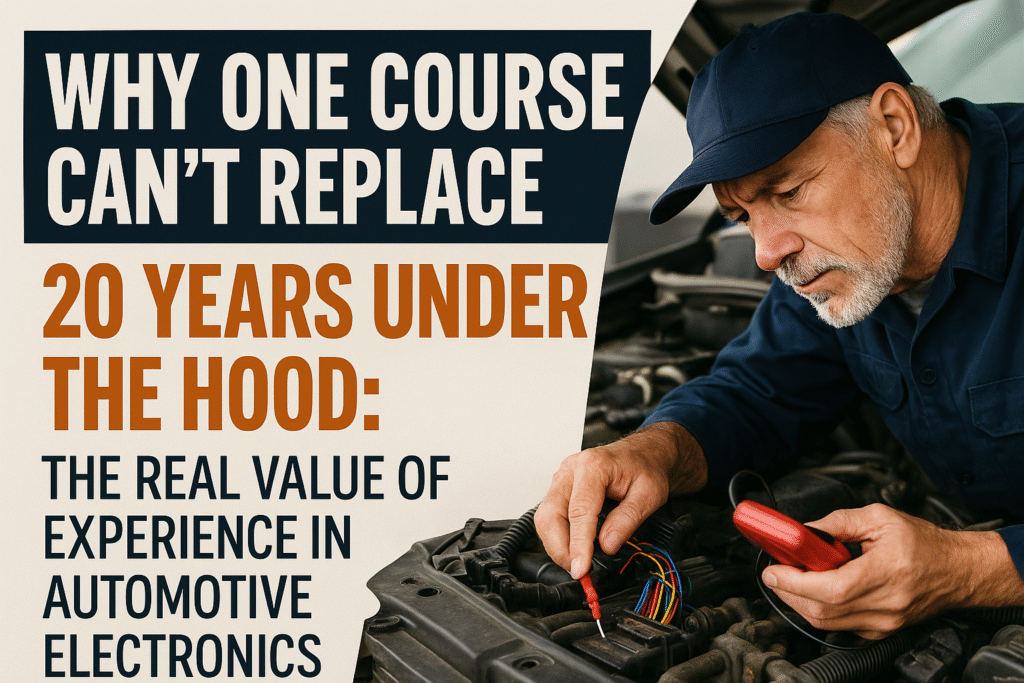In today’s fast-paced, tech-driven world, it’s tempting to believe that a short course or a certification can make you an expert. And while training is absolutely essential, there’s a growing misconception among new technicians: that completing a single automotive electronics course equals the experience of someone with 20 years in the field.

The Power of Training — And Its Limits:
Formal training, especially in automotive electronics, is a critical foundation. Courses teach theory, introduce new systems, and keep us up to date with evolving vehicle tech — from CAN bus systems to ECU programming and diagnostics. But training gives you the “what” and “why” — not always the “how to” in a real-world scenario.
One course may show you how to read a wiring diagram. Two decades in the field teaches you how to trust your gut when the diagram doesn’t match the vehicle.
Experience Can’t Be Downloaded:
Experience means:
- Diagnosing intermittent faults under pressure
- Handling systems that don’t behave like they do in training simulators
- Learning from costly mistakes and hard-earned wins
- Developing the soft skills: customer communication, time management, tool intuition
It’s the accumulation of thousands of hours in the workshop — making judgment calls, using diagnostic tools in less-than-perfect environments, and finding solutions with limited resources.
No course — no matter how advanced — can simulate that level of problem-solving.
Confidence vs Competence:
A major risk is overconfidence. New techs, fresh off a training high, may approach complex diagnostics with unrealistic expectations. The danger? Misdiagnoses, unnecessary part replacements, or even damaging customer vehicles. Not out of negligence, but from lack of time-earned instinct.
There’s a reason seasoned techs often solve the issue in half the time — they’ve seen it before, made the mistake, and learned from it.
So, What’s the Right Mindset?
We’re not discouraging learning — we encourage it. But here’s the balance to strike:
- Respect the craft — Understand that knowledge is layered. One course is a great start, not a finish line.
- Find mentors — Work alongside experienced techs. Watch, ask, and listen.
- Stay humble — Experience is not just about age, it’s about mileage in the trade.
- Keep learning — Courses, case studies, and evolving vehicle tech demand constant development. But let it complement, not substitute, real-world work.
Final Thought:
The goal is not just to fix vehicles — it’s to build a reputation. And that takes more than a course. It takes time, trial, error, and hands-on hustle.
Because in automotive electronics, just like in life, experience isn’t something you can fast-track — it’s something you earn.
